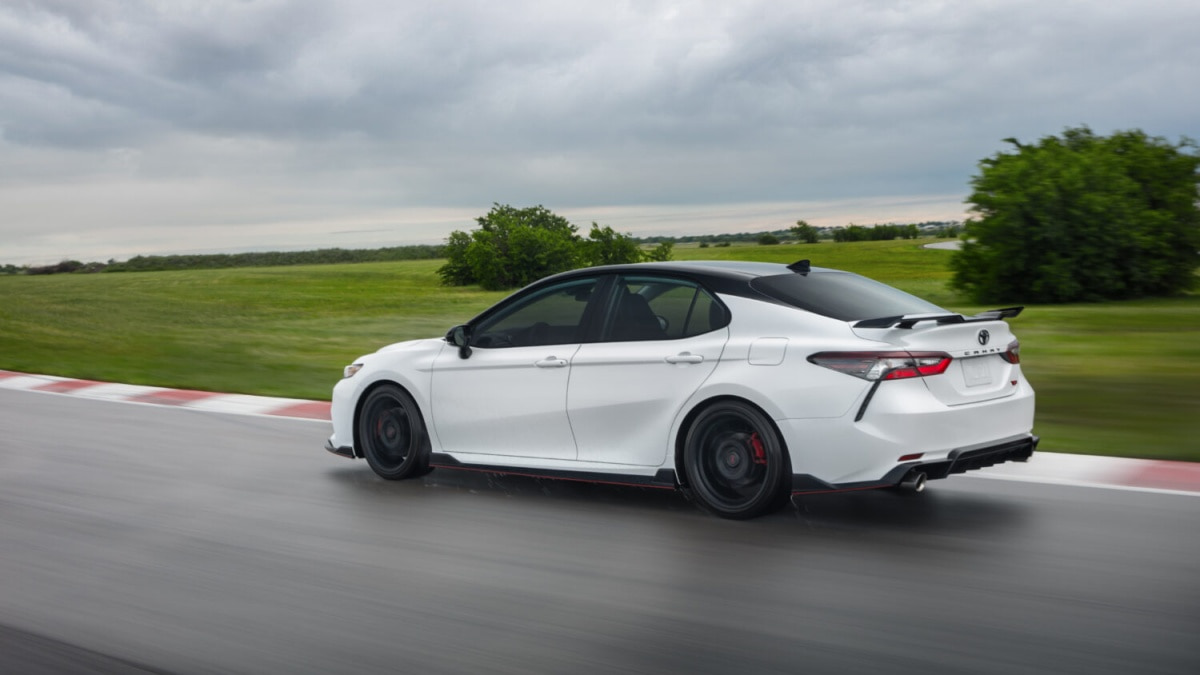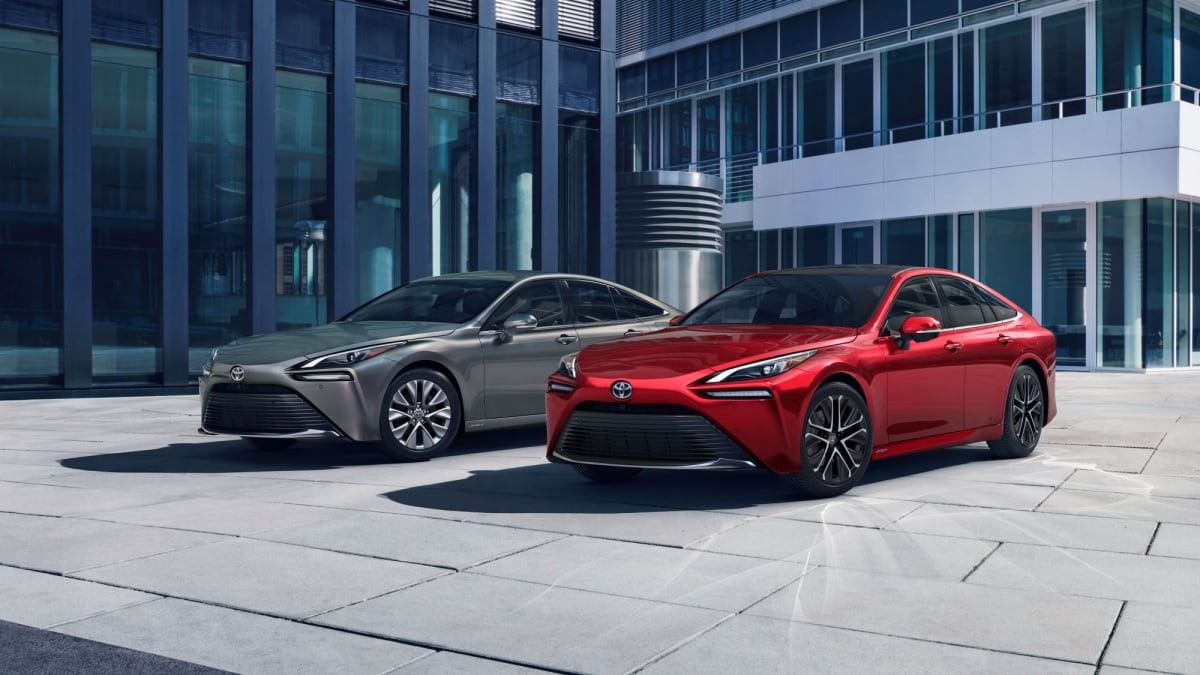The continuously-evolving Toyota Camry is the best-selling model of the Japanese carmaker, in the US. Toyota is doubling down on hydrogen and hybrid vehicles, and from 2025, Toyota Camry is scheduled to become a hybrid-only model.
On the other hand, we have the Toyota Mirai hydrogen fuel-cell vehicle (FCEV), which turned out to be a sales hit, but which makes more sense in the market's current state? For this purpose, I am comparing the 2024 Toyota Camry LE 2.5 hybrid (FHEV) and the 2024 Toyota Mirai XLE (FCEV). I am also looking at the current state of the infrastructure for charging both types of vehicles as well as the cost.
Toyota Camry and Toyota Mirai are, both, mid-size sedans so they are comparable with one another.
Where can you refill it?
The Toyota Camry features a full hybrid powertrain, meaning the battery is charged entirely by the internal combustion engine. This means a gas station is all you need. There are currently over 145,000 gas stations on US territory, so finding one would not be difficult.
Meanwhile, things aren't as simple for the Toyota Mirai. While hydrogen charging stations are, almost always located at conventional gas stations, there are only 59 hydrogen charging stations, according to 2023 data. According to the Department of Energy, at least 50 more hydrogen charging stations are, currently, in various stages of development, so the infrastructure is getting there.
Fuel economy and cost
On paper, the Toyota Camry 2.5 hybrid loses to the Mirai. Toyota's most popular Japanese sedan in the US gets 52 MPG combined according to the EPA cycle. Its 13.2-gallon fuel tank is enough for 686 miles of range, and it costs $43 to refill. The 2024 Toyota Camry LE hybrid also releases 170 grams of CO2 per mile. Refueling the 2024 Toyota Camry 2.5 hybrid would cost you $950, for every 15,000 miles.
Here's where it gets interesting. The 2024 Toyota Mirai XLE gets 74 MPGe combined EPA. The Mirai can hold 5.6 kilograms of hydrogen in its 37.5-gallon hydrogen tank. With an average consumption of 1.4 kilograms per 100 miles, you can get 402 miles of range from the 2024 Toyota Mirai XLE. It's worth noting that it would cost you $201.60 to refill the hydrogen tank as 1 kg of hydrogen costs $36.
Given the Mirai's fuel consumption of 1.4 kilograms per 100 miles, I calculated it would cost you $7,560 per 15,000 miles, or just over $2 per mile to refuel the Mirai. On the plus side, hydrogen fuel-cell vehicles don't emit CO2 emissions.
Instead, they emit water vapor, which is harmless. Then there is the fact hydrogen is abundant and made of renewable energy. Sadly, the technology is still expensive despite hydrogen being used for commercial purposes over the last 80 years.
Toyota Mirai versus Toyota Camry performance

Since both the Mirai and Camry are mid-size sedans, there isn't much point in comparing their practicality. The main difference here is that the Mirai has rear-wheel drive while the Camry has front-wheel drive.
The Mirai is a fuel-cell electric vehicle meaning it transforms hydrogen into electricity while the Camry relies on an internal combustion engine, with the electric motor significantly reducing the environmental impact of the already-efficient, four-cylinder engine.
2024 Toyota Mirai performance specifications:
- 1x rear-mounted electric motor and 1.2 kWh battery
- Engine output: 182 horsepower, 221 pound-feet (300 Nm)
- 0-60 MPH: 8.7 seconds
- Curb weight: 4,299 pounds (1,950 kg)
- Starting MSRP: $50,190
2024 Toyota Camry 2.5 Hybrid performance specifications:
- 2.5-liter, Atkinson Cycle, naturally-aspirated, inline-four engine + 1x electric motor and 1.6 kWh battery
- Engine output: 178 horsepower, 163 pound-feet (221 Nm)
- Electric motor output: 120 horsepower, 149 pound-feet (202 Nm)
- Combined system output: 218 horsepower
- 0-60 MPH: 7.9 seconds
- Curb weight: 3,494 pounds (1,585 kg)
- Starting MSRP: $29,950
Dimitar Angelov's automotive interests made him an expert in a wide variety of vehicles. Japanese brands like Toyota are closest to his heart, although performance cars in general are his favorite segment, which is why he is constantly on the lookout for the best deals on the market. Dimitar Angelov's car passion and knack for the written word led him to complete a Master of Arts in Media and Communications, and classic car restoration. Dim is happy to get behind the wheel of any car and share his impressions. You can follow Dimitar on X, Linked-in, Instagram, and Facebook.





